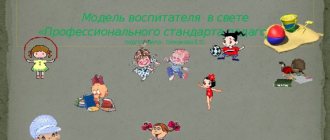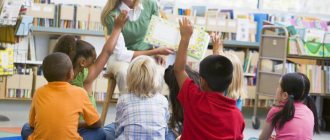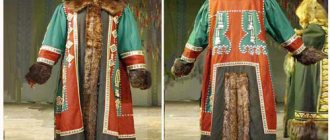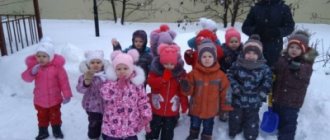Severnyuk Natalya Vladimirovna, deputy director of MAOU Secondary School No. 8, Ishim
The date of the teachers' meeting is 05.11.2014
| Form of conducting pedagogical | Business game “Exchange of Pedagogical Ideas” |
Scenario for holding a teachers' meeting
1. Plan of the teachers' council. 1. Opening remarks. Justification of the topic and form of the pedagogical council. 2. Practical part. Formulation of the problem. Work in groups. 3. Protection of the product of activity (algorithm, model, project, presentation, etc.) 4. Evaluation of results by “investors”. 5. Reflection. 6. Summing up the results of the pedagogical council. 2. Goals and objectives of the teachers' council. The goal of the work is to develop a specific algorithm of actions, a lesson model using modern technologies to effectively work with each student, as well as exchange interesting findings and ideas based on professional and personal practical experience. Objectives: 1. Increasing the motivation of the teaching staff to introduce modern teaching technologies and use a differentiated approach to each student in the lesson. 2. Improving professional skills, developing the creative activity of teaching staff of an educational organization. 3. Development of a lesson model that allows coordinating the actions of subject teachers in working with low-performing students and students who have particular success in learning. 4. Determination of practical approaches, organizational and pedagogical conditions, key methods aimed at increasing the social capital of an educational organization. 3. Progress of the teachers' council.
Pedagogical Council “Exchange of Pedagogical Ideas” Good morning, colleagues! The pedagogical council will not take place in the traditional form that is familiar to you. You will learn later why we chose this form. Today I would like to begin our pedagogical council with a statement by Yasvin Vitold Albertovich, Doctor of Psychology, laureate of the Russian Government Prize in the field of education “Changes in people’s attitudes and behavior occur much more effectively in the process of their group rather than individual functioning. A person’s personal self-development is determined by reflection on how other people perceive him,” these words contain the main idea of our today’s pedagogical council, namely, in the course of group work we must find effective ways and approaches to organizing a lesson with students of different levels of training, motivation to training. And the process of communication itself, the situation of sharing experiences, mutual exchange is very important.
The education system today is undergoing significant changes: new education standards are being introduced, modern technologies are increasingly penetrating into schools: information and communication, project-based, problem-based, critical thinking, health-saving. The question arises: “Is there something inside an educational organization that can ensure its development in the plane of these modern changes?”
Yes, this is the social capital of an educational organization - joint activity, the result of collective action, in other words, this is the ability of the teaching staff to act together, independently and of their own free will, without external coercion. If we analyze the content of the standards, we can clearly see that the conditions for the transition to educational standards of a new generation require schools to change the educational paradigm. Education today is the result of collective action. In the new standard, this is reflected in the requirements for the learning outcome: the formation of educational skills, meta-subject competencies, the results of educational activities, the portfolio system, and students’ mastery of methods of joint activities.
Today, in the conditions of collective work in groups, in the process of joint learning, we will try to develop a system of professional agreements on the topic: “Technologies for working with poorly motivated children and children with a high level of cognitive activity.”
The goal of the work is to develop a specific algorithm of actions, a lesson model using modern technologies to work effectively with each student, exchange interesting findings and ideas based on professional and personal practical experience. I suggest you play a business game: “Exchange of Pedagogical Ideas.”
Let’s introduce the participants of the exchange: Group 1 – teachers of natural sciences and mathematics; Group 2 – teachers of the humanities and foreign languages; Group 3 – primary school teachers; - tutors (heads of subject and interdisciplinary school methodological associations) - a representative in each group, assistants, coordinators of ideas in groups; Group 4 (administration representatives) – “investors”, people who will invest their investments in “grand” ideas, choose effective approaches and techniques. You can materialize your ideas on paper in our press center. Attention! Exchange participants! You are faced with the following task: to propose a model of 3 lessons using technology - project activities, critical thinking, problem-based learning.
I would like to draw your attention to the fact that the main goal of collaboration is not updating knowledge about technologies, but developing a lesson model with interesting techniques, findings, and ideas.
Each group has cheat sheets on the table that reveal the features of each technology, as well as didactic material for creating an activity product.
We offer you key guidelines when drawing up a lesson model that you can focus on: compliance with the stages of the lesson, implementation of technology, targeting weak and strong students, examples from practice, risks.
Work in groups is limited to 30 minutes. Protection of projects for each technology separately (“3 circles”). Projects are discussed by investors after each “circle”.
The performance of each group is 3-5 minutes. Reflection. Discussion of the results of the work. Investors have made their choice. Well, now I would like to know your attitude to our event. To summarize our work, I suggest each of you take a square whose color is close to you in meaning and raise your hand up. Green - I already knew about this, but it was interesting. Blue - I learned a lot of new interesting things. Yellow - I will use this in my future work. Red - I was able to gain new experience and answer the questions that worried me at the very beginning. And finally, I would like to tell you a parable.
Parable (about cooperation). Once upon a time there lived a monk. And for most of his life he tried to figure out the difference between Hell and Heaven. He thought about this topic day and night. And one night, when he fell asleep during his painful thoughts, he dreamed that he was in Hell. He looked around and saw people sitting in front of a pot of food. But some were exhausted and hungry. He took a closer look - everyone was holding a spoon with a long-long handle. They can scoop it out of the cauldron, but they won’t get into your mouth. Suddenly a local employee (apparently the devil) runs up to the monk and shouts: “Hurry up, otherwise you’ll be late for the train going to Paradise.” A man arrived in Paradise. And what does he see?! The same picture as in Hell. Cauldrons of food, people with spoons with long-long handles. But everyone is cheerful and well-fed. The man took a closer look - and here people were feeding each other with the same spoons. Conclusion: it is necessary to cooperate, exchange experiences with colleagues in order to develop personally and professionally, as well as to lead your educational organization forward. The participants of each group will be able to receive printed materials based on the results of their work in our press center or at meetings of the ShMO.
4. Decision of the teachers' council. 1. To develop the educational environment as a condition for improving the quality of education through continuing work to improve school infrastructure, realizing one’s own professional potential, and ensuring openness of professional activities. 2. Strengthen methodological work in the following areas: - use of modern technologies in teaching; — effective pedagogical support for students with a low level of motivation to learn. 3. Develop individual educational routes for children with high and low levels of motivation to learn.
Teachers' council in the form of a business game in a preschool educational institution
Pedagogical council in the form of a business game for kindergarten teachers on the topic: Organization of educational activities in preschool educational institutions as part of the implementation of the educational program “cognitive development”.
Goal: to identify teachers’ ability to build educational activities within the framework of implementing the tasks of the educational field of “cognitive development”. Senior teacher
: Dear teachers, for a month we have been studying the content of the educational area “cognitive development”.
Today we will test your knowledge, see how much you have mastered the tasks and content of this educational area. Before the teachers’ council, you were given the task of dividing into teams, coming up with a name and presentation for your team related to the tasks of the educational field “cognitive development” (teams take turns presenting their teams). A jury will evaluate your presentations and knowledge: the head of the preschool educational institution and the senior teacher. For each correct answer you will receive medals; at the end of the teachers' meeting we will count the medals and determine the winner. “Brainstorm”:
1. What types of children’s activities would you classify as part of the educational field of “cognitive development”?
2. What tasks belong to the educational field of “cognitive development”? 3. Name the forms of work with children to solve problems in the educational field of “cognitive development.” The team that answers the question faster receives medals. 1st station: “Curiosity”
At this station there are two specialists: the preparatory group teacher Svetlana Nikolaevna Baranova and the middle group teacher Olga Sergeevna Maksimova.
Svetlana Nikolaevna will tell us how to develop curiosity and cognitive motivation in children. The teacher reads a message on this topic, analyzes the joint educational activities shown earlier. There is a discussion going on. Olga Sergeevna will introduce us to a form of working with children aimed at developing imagination and creative activity. The teacher makes a report and analyzes the joint educational activities shown earlier. There is a discussion going on. Assignment for teams: teams are given only game names; they need to come up with a plot for the game. The games are aimed at developing curiosity, imagination and creativity. 2nd station: “Traditions of our people.”
At the station, a speech therapist and music director make a report on the topic: “Working with children aimed at developing ideas about the sociocultural values of our people.”
Following the message is a discussion of the collaborative educational activities shown earlier. Assignment for teams: name the traditions of the Russian people. Teams take turns naming forms of work; the last one to name gets a medal. 3rd station: “Malaya Rodina”.
The teacher of the senior group makes a report on this topic.
Conducts an analysis of the joint educational activities shown earlier. There is a discussion going on. Assignment for teams: name forms of work with children on the topic “Russia”. Teams take turns naming forms of work; the last one to name gets a medal. 4th station: “Planet Earth is the common home of people.”
The teacher of the senior group makes a report on this topic.
Afterwards there is a discussion. 5th station: “Analysis of diagnostics of pupils on the formation of initial mathematical concepts”
The senior teacher conducts an analysis of diagnostics on the formation of initial mathematical concepts in children of senior preschool age.
6th station: “Reflection”.
Each team expresses its opinion on the business game conducted using the “Six Thinking Hats” method. Each team gets a hat of a certain color, and for 2 minutes the teams discuss their answers according to the color. The jury sums up the results and the winners are awarded certificates
We recommend watching:
Pedagogical Council - KVN for kindergarten teachers Pedagogical skills of a kindergarten teacher Seminar - workshop for preschool teachers: Construction from building material Business game for preschool teachers
Similar articles:
Pedagogical council on traffic rules in kindergarten








